Physical Address
60 Ekwema Cres, Layout 460281, Imo
Physical Address
60 Ekwema Cres, Layout 460281, Imo

Starting a tech company is an exciting journey. It is full of challenges, risks, and growth opportunities. As a founder, you’ll wear many hats. You’ll be the visionary, the problem-solver, and everything in between.
There’s a wealth of knowledge available in some insightful books that can guide you through the process. If you’re just starting out or looking to expand your tech startup, these 10 best startup books are must-reads.
They cover all aspects, from starting a business to developing the right mindset to conquer the world of tech and entrepreneurship.
Join me, let’s quickly look at these books.
Read – How to Borrow Money from Stanbic Bank in Nigeria | A Step-by-Step Guide

Studying books for tech startup founders provides key insights and tips that show you the easiest way to tech and business.
The authors of these books include seasoned founders, investors, and industry experts who share their real-world experiences, lessons, and hands-on advice.
I believe that reading these guys’ stories and strategies would better equip you to tackle the challenges of launching and growing your own business.
What’s more? These resources cover essential topics like fundraising, product development, leadership, team building, and market identification. They look at every other area that plays a key role in tech industry success.
They can also help you steer clear of common mistakes that many startup founders run into.
Spending time to read these books not only boosts your knowledge but also sparks your creativity and strategic thinking about your path as a founder.
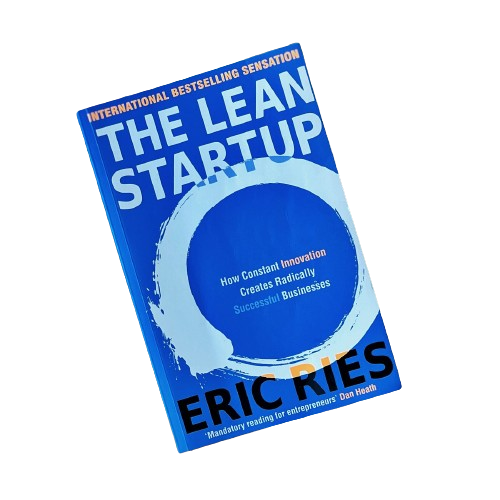
The Lean Startup has become the go-to book for tech startups. Eric Ries introduces the “lean” method, which stresses creating a basic working product (MVP) and tweaking it based on what customers say.
The main idea involves building something, testing it learning from the results, and then choosing to change direction or keep going.
This book shows founders how to come up with new ideas and get more done. It teaches them how to avoid wasting time and money on ideas that won’t work in real life.
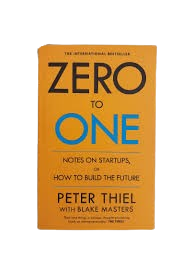
Peter Thiel, who helped start PayPal, shares a fresh take on launching a company that brings something new to the world instead of just making existing products better.
Zero to One questions common ideas that tell founders to focus on new things that push the limits of what we think we can do.
Thiel’s thoughts on rivalry controlling markets, and starting with a daring plan are key for any tech entrepreneur who wants to leave a mark.

Ben Horowitz, an experienced entrepreneur and venture capitalist, talks about running a startup.
In The Hard Thing About Hard Things, he gives straightforward advice on the toughest choices a founder needs to makeᅳfrom letting employees go, to staying sane, to steering a company through tough times.
This book looks at the difficulties of entrepreneurship offering insights from someone who has been there.
Read: What Happened to Okada Books? Nigeria’s Pioneer Digital Publishing Platform

Startups find it hard to move their tech product from early adopters to the mainstream market.
Crossing the Chasm tackles this issue by offering ways to connect early adopters with the wider market.
Moore’s ideas on how to position, market, and sell products are key for tech founders who want their products to become popular.
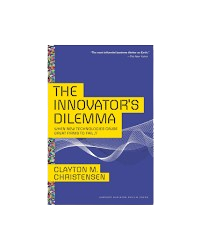
“Innovator’s Dilemma” is a key book that shows why companies that do well often can’t come up with fresh ideas. Christensen talks about “disruptive innovation,” where new firms can beat big ones by making things simpler and cheaper.
People who start tech companies need to get this process to shake up current markets and protect themselves from possible disruptors.
You have to read this book to stay on top of the always-changing tech world.
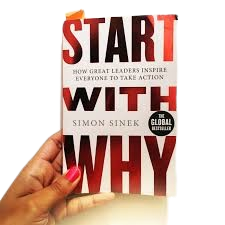
What makes some companies inspire loyalty while others don’t?
Simon Sinek argues that the most successful organizations begin with “why”ᅳtheir core purpose or belief.
Start with Why encourages founders to lead with a clear vision and mission to build a company culture that resonates with employees, customers, and investors alike.
This book reminds us that the “why” driving your startup often carries more weight than the “what” or “how.”

Andrew Grove, who led Intel as CEO, offers practical advice to manage teams, make decisions, and grow a company in High Output Management.
While it doesn’t zero in on startups, Grove’s insights work well for any tech founder.
This book provides the essentials to build a well-oiled productive organization covering everything from setting goals to evaluating performance.
Also Read: 13 Best AI Note Taking Apps
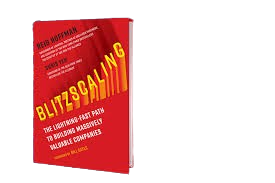
In the tech industry, speed often leads to success. Blitzscaling by LinkedIn co-founder Reid Hoffman looks at how companies can grow to outpace their competitors.
The book talks about ways to handle fast growth, from hiring the best people to dealing with the risks of expanding too.
This book is a key resource for driven founders who aim to grow fast while staying in charge.
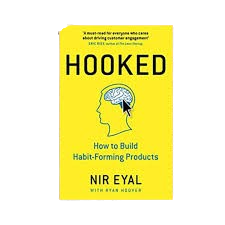
Every tech startup wants to make products people can’t live without.
Hooked by Nir Eyal looks at why some products become habits and others don’t. Eyal’s “Hook Model” shows how to design products that have an impact on users and keep them coming back.
Founders who want to enhance their product development and user experience should read this book.
Read: The 10 Best Laptops for Programming Right Now in 2024
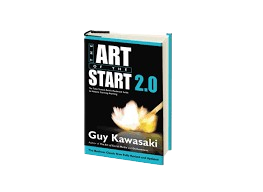
Guy Kawasaki, a former Apple evangelist, provides a comprehensive guide to starting a company in The Art of the Start 2.0.
His book covers all aspects you need to know to launch and grow a startup, from pitching to investors to building a brand.
Kawasaki’s straight-talking advice coupled with real-world examples, makes this book essential for anyone in the early stages of setting up a tech company.
Many recommended titles focus on leadership, culture building, and effective communication within teams. Books like Leaders Eat Last by Simon Sinek emphasize creating an environment where employees thrive.
Most of the recommended books blend theory with practical advice, offering real-world examples and actionable steps that you can implement in your startup.
You can find them at local bookstores, or online retailers like Amazon, or even borrow them from libraries—many also have digital versions available for e-readers.
The right resources can make a big difference in your journey as a tech startup founder. The ten books we’ve revealed here don’t just give you valuable insights and strategies. They also push you to be tough and come up with new ideas when things get tough.
When you dive into these lasting lessons from entrepreneurs who’ve made it, you set yourself up for your own success story.
Keep in mind; every great business starts with knowledge and being open to learning. So pick up one or all of these books today and start turning your startup dreams into something real.
Have any questions or want to know more? Drop a comment below! Also, make sure to keep up with us on social media for more helpful tips and news. You can find us here: